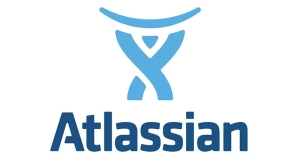Sean Kalinich
The Group Behind Emotet is Looking to Get Around Microsoft’s VBA Changes
TA542 the wonderful people that brought you Emotet appears to be in the middle of a development and testing cycle on new delivery methods. According to researchers at ProofPoint the creators or the Emotet Botnet are potentially looking to find a new delivery method in response to the, long overdue, default disabling of VBA based Macros by Microsoft in their office products. Although ProofPoint seems to think this is development testing, the activity could also be part of a more targeted campaign.
Amazon’s Awkward Moment as Log4J Fix has an Escalation and Escape Bug
It seems that Amazon’s hotfix for Log4Shell in their AWS environment might have been a bit rushed. According to a review of the hot there are a total of four CVEs specifically related to the hotfix and how it functions. CVE-2021-3100, CVE-2021-3101, CVE-2022-0070, and CVE-2022-0071 have a CVSS score of 8.8 and allow for privilege escalation and container escape. It is not often that a fix for one bad bug contains a potentially worse one, but here we are.
Okta now says Lapsus$ only had 25 Minutes of Fame with Two Clients
The breach of IDAM group Okta in January by the self-promoting group Lapsus$ amidst other high-profile breaches and data leaks this year was a significant concern. The concern rose because when the incident first happened, Okta passed it off as an unsuccessful attempt to breach a third-party vendor’s system that had access to Okta systems. However, in March the Lapsus$ group released screenshots of internal systems including what appeared to be Okta’s superuser system.
There is Good News and Bad news in the Atlassian Outage.
On April 6th news of an outage at Atlassian that affected customers using Jira, Confluence and other products started to surface. The outage started the day before on the 5th and started rumors of everything from a ransomware attack to a potential breach. The rumors were quickly dispelled by Atlassian who stated that a routine maintenance script accidentally “disabled” a small number of customer sites. While their status page showed the status of affected products to be “active Incident”. The messages to customers indicated that restoration of sites would take “several days”, but now a week later there are still people reporting that their sites are still unavailable.
CISA warns that US ICS/SCADA Systems are being Targeted by Threat Groups
CISA has issued another warning that SCADA/ICS systems are being targeted for attack. This time they are in the sights of Nation-State groups and with customized tools. The tools are part of follow-on activities after the initial beachhead has been established. These days gaining initial access to a network, even for infrastructure, does not seem to be a difficult task for nation-state groups.
Law Enforcement Celebrates Another Hacker Forum Takedown as the Seizure of RaidForums is Announced.
2022 has been a busy year for the information security industry on both sides of the playing field. We have seen an increase in target attacks on businesses, a larger number of Zero-Day vulnerabilities disclosed that were being actively exploited in the wild, several major companies had data stollen and leaked, and we cannot forget the threat actor war going on over the Russian Invasion of Ukraine. With all these items, law enforcement agencies have also been very busy with the seizure and shut down of two major “hacker” marketplaces, Hydra and RaidForums.
Open Source Takes Another Hit as 3rd Protestware Shows up in NPM Repository
The Open Source community has been one that many leverage to help build their applications. It has become a great place to find applications packages that make building out a larger application or eco systems less time consuming. We see this in just about every development space from large to small. Having helpful sources of working code can speed up the development lifecycle and allow for greater interoperability as many applications use the same dependencies and core functions. The open source community is a great resource and typically is one that you can trust to pull code from.
Twitter Backtracks on Removing Embedded Tweets from 3rd Party Websites after Deletion for Now
Twitter is an interesting company. On the one hand they act like they are a bastion of free speech and have stood up for the anonymity of some of the users. They have, in the past refused government interference in how their users post information and respond to tweets on their service. They claim to be against bullying and hate. At the same time, they have suspended accounts, removed tweets and permanently banned people for some very arbitrary reasons. They have stood their ground over this even when proven wrong about the original action. They have also left up tweets calling for violence by some while removing others, very confusing.
Leaked Conti Ransomware used in Attacks on Russian Targets
Not that long ago, a Ukrainian security researcher published a vast number of internal chats from the Ransomware group Conti. On top of that treasure trove of information the same researcher also published the source code for the Conti Ransomware. The leak of information came after the Conti group pledged their full support of the Russian invasion of Ukraine and vowed to target anyone they felt was waging cyber-war on Russia. The message was later toned down, but the effect still lingers and was one of the moves that started an interesting threat group war.
Crypto Mining Malware Targeting Amazon Lambda Serverless Environments
Some needs to let Gordan Freeman know that the Xen aliens are attacking Lambda, time to grab a crowbar and go to work. Ok, so there are no invaders from a border dimension coming and the Lambda in question is really Amazon’s Lambda Serverless function in AWS while the threat is a bit of crypto mining malware that appears to have been specifically written for Lambda in Google’s Go.










